Fri, 01/23/2015 - 18:25
The King Is Dead, Long Live His Geriatric Brother
The Kingdom of No Surprises has offered up, if not a thunderbolt, at least a little frisson of novelty.
And that’s a huge deal by Saudi standards.
After weeks of deathbed vigils and realms of column space devoted to an upcoming succession saga, Saudi King Abdullah died in hospital aged 90.
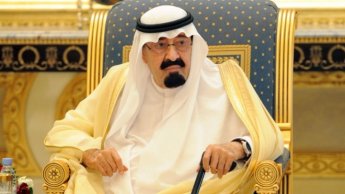
Back in 2005, shortly after Abdullah took over the throne, he created an Allegiance Council to help choose the line of succession and defuse potential power struggles within the House of Saud.
“Allegiance” being the key word here, the council pretty much lived up to its name for a decade, endorsing the old king’s decisions. And so, aging Abdullah’s hand-picked aging crown prince, Salman Abdel Aziz bin Saud, became the new king Friday at the tender age of 79.
No boy-kings of course in this country of old men. As everyone knows, Saudi Arabia does not follow the primogeniture system that supplies countries like Britain their successions of entitled, first-born monarchs. Power in the Kingdom of Saudi Arabia has been handed from brother-to-brother among the 45 sons (from different women, of course) of Saudi founding father, Abdel Aziz Ibn Saud.
But they’re running out of Ibn Saud sons. The brothers and half-brothers have been steadily aging, dying and most of the ones still standing (even barely) are considered unfit to rule.
All of which creates a characteristically Saudi form of anxiety that also grips experts monitoring the oil-rich Sunni powerhouse. This rises further when Saudi TV stations broadcast clips of the reigning monarch and his successor shuffling into grand assembly halls stooped, unsteady and clutching their gold-rimmed thawbs, or traditional robes. Sometimes, the monarch has to shake a royal limb for the al ardah -- a Saudi sword dance of minimal movement -- and that can be particularly excruciating to behold.
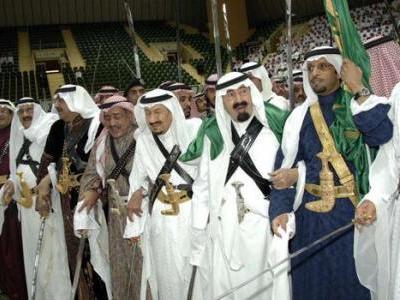
But lo and behold, the so-far untested Allegiance Council has lived up to its mandate and the latest succession was handled smoothly without a visible glitch. Former Crown Prince Salman has taken over the throne.
‘The Return of the Sudairi Seven’
Salman belongs to what is called the “Sudairi Seven” – or the seven sons of Ibn Saud and one of the most influential wives of the Saudi founding father. Their mother, Hassa bint Ahmad al-Sudairi, was a member of the powerful Sudairi clan from the kingdom’s heartland Nejd region. Around the time Ibn Saud was founding the country in the early 1930s, the warrior king married a series of wives hailing from Arabia’s powerful clans, thereby cementing and expanding his power.
The central Nejd region is also the birthplace of Wahhabism, the kingdom’s conservative ideology, and so the Sudairis are considered true followers of the faith, upping their prestige in a country that prides itself as the birthplace of Islam.
Salman is the second Sudairi brother to ascend the throne after his elder brother, King Fahd, who reigned from 1982 to 2005.
In the Arab world – where Saudi royal ties are monitored with the same enthusiasm as Daily Mail subscribers devouring British royal family gossip – the new king’s appointment has been dubbed, “The Return of the Sudairi Seven”.
The implications of this will no doubt be discussed ad nauseam in tea stalls, coffee houses, sisha joints and probably jihadi training camps across the Middle East. In reality though, it means precious little. Salman was Abdullah’s crown prince since 2012, when his fellow Sudairi brother, Nayef bin Abdelaziz, died. The former crown prince, as the French say, “knows the files”. King Salman is widely expected to continue his predecessor’s policies in the Kingdom of No Surprises.
Too close to the ‘caliphate’ for comfort
To be fair to the new monarch, he does not have much of a choice. The birthplace of Islam and home to the religion’s holiest sites is not in a particularly good spot these days.
To the south, its troublesome, impoverished neighbor, Yemen, has been sliding into free-fall. The government has fallen, the prime minister has resigned, the president wants to quit, but he’s being denied that respite and a Shiite minority – anathema to chauvinistically Sunni Saudi Arabia – is pulling the strings in Sanaa.
To the north, that 800-kilometer border with Iraq is precariously close to an upstart jihadist caliphate and the fallout from all those radicalized Saudi hotheads on that battlefield represents an existential domestic threat to the House of Saud, a deeply reviled institution in jihadist ranks.
Across Iraq lies Iran, Saudi Arabia’s arch sectarian foe. Tehran’s influence is spreading across the region and that has international and domestic implications for Saudi authorities.
In the Nejd heartland, the clerics aren’t showing any sign of keeping up with the times, so don’t expect to see an end to lashings or Saudi women taking to the wheel any time soon.
Social mobility in the age of no choices
More concerning though is the state of the new king’s health. There have been numerous reports that Salman is suffers from dementia”. The Economist and Washington Post are just two of many respected publications reporting these reports without citing any source. But these are the occupational hazards of covering the secretive House of Saud.
Salman had been chairing cabinet meetings for several months before Abdullah’s death. As the crown prince, he has visited a number of countries – including France, India and China – and a number of diplomats who have attended meetings with him maintain that he has been fully engaged in talks lasting several hours. Or so they say.
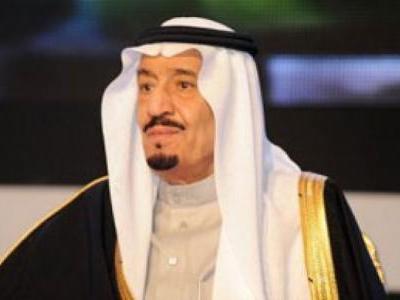
Dementia or no dementia, King Salman has, in the first day of his reign, instituted a change that’s tectonic by conservative Saudi standards.
Here’s how it works: King Salman has appointed his half-brother, Prince Muqrin, as the new crown prince. Born in 1945, when his father was almost 70, Muqrin is the youngest of founding father Ibn Saud’s 45 sons.
Muqrin’s mother was no Nejd religious aristocrat. Known as Yamaniyah, Muqrin’s mother was Ibn Saud’s Yemeni concubine, a lineage dismissed by the pristine Sudairi set.
But when you’re running out of able-bodied and able-minded brothers, it can make for some degree of social mobility. So, when the current king expires, if all goes according to plan, the desert kingdom will have its first king born to a non-Saudi mother.
Or, as some Saudi analysts predict (and hope), the not-particularly qualified Muqrin could just abdicate the throne, citing ill-health. In that case, the next in line will take over the throne.
And it’s the next step in the succession saga that’s truly historic. For the first time in Saudi Arabia’s 83-year history, the succession line has stretched to the third generation of the ruling dynasty.
In a royal decree issued shortly after his takeover, King Salman named his nephew, Ibn Saud’s grandson, Prince Muhammad bin Nayef, the new deputy crown prince.
And with that, in one astute move, King Salman spared his country a spasm of succession anxiety by smoothly setting the path for a third generational takeover.
Interior ministry: a truly family affair
This is both, a big deal and a not-so big deal after all – depending on how you choose to view it.
Prince Muhammad bin Nayef is the obvious choice among the Ibn Saud grandsons. He was the interior minister under the late King Abdullah and has retained that all-important position in a country that breeds its own biggest national security threat: extremist Islamism.
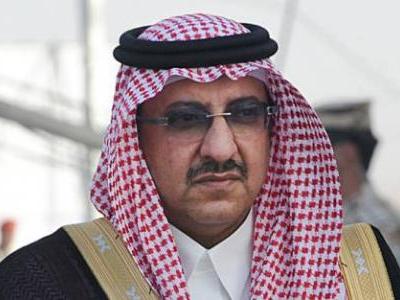
The interior ministry seems to be a Nayef family business. The current minister took over the portfolio in 2012, after the death of his father, Nayef bin Abdel Aziz al Saud, who was the country’s iron interior minister for 37 years.
The first Ibn Saud grandson in the Saudi succession line also happens to hail from the Sudeiri line – his grandmother was the formidable Hassa bint Ahmad al-Sudairi. So, it’s a relatively easy transition to the next generation.
If anyone believes the third gen transition represents any hope for reforms and structural change that would free the House of Saud from the clutches of powerful Wahhabi clerics, they are dreaming and should stop it now.
Deputy Crown Prince Muhammad bin Nayef is above all a security-conscious prince. Since he took over as interior minister in 2012, crackdowns on activists have continued and his office is said to be staffed by ultra-conservative men.
He’s also ultra hawkish on Iran, according to US cables released by WikiLeaks, so don’t expect the Sunni superpower to make any grand concession to the Shiite apostates anytime soon. As I said, in the Kingdom of No Surprises, there are no thunderbolts, only delicate little frissons of change.
And that’s a huge deal by Saudi standards.
After weeks of deathbed vigils and realms of column space devoted to an upcoming succession saga, Saudi King Abdullah died in hospital aged 90.

Back in 2005, shortly after Abdullah took over the throne, he created an Allegiance Council to help choose the line of succession and defuse potential power struggles within the House of Saud.
“Allegiance” being the key word here, the council pretty much lived up to its name for a decade, endorsing the old king’s decisions. And so, aging Abdullah’s hand-picked aging crown prince, Salman Abdel Aziz bin Saud, became the new king Friday at the tender age of 79.
No boy-kings of course in this country of old men. As everyone knows, Saudi Arabia does not follow the primogeniture system that supplies countries like Britain their successions of entitled, first-born monarchs. Power in the Kingdom of Saudi Arabia has been handed from brother-to-brother among the 45 sons (from different women, of course) of Saudi founding father, Abdel Aziz Ibn Saud.
But they’re running out of Ibn Saud sons. The brothers and half-brothers have been steadily aging, dying and most of the ones still standing (even barely) are considered unfit to rule.
All of which creates a characteristically Saudi form of anxiety that also grips experts monitoring the oil-rich Sunni powerhouse. This rises further when Saudi TV stations broadcast clips of the reigning monarch and his successor shuffling into grand assembly halls stooped, unsteady and clutching their gold-rimmed thawbs, or traditional robes. Sometimes, the monarch has to shake a royal limb for the al ardah -- a Saudi sword dance of minimal movement -- and that can be particularly excruciating to behold.

But lo and behold, the so-far untested Allegiance Council has lived up to its mandate and the latest succession was handled smoothly without a visible glitch. Former Crown Prince Salman has taken over the throne.
‘The Return of the Sudairi Seven’
Salman belongs to what is called the “Sudairi Seven” – or the seven sons of Ibn Saud and one of the most influential wives of the Saudi founding father. Their mother, Hassa bint Ahmad al-Sudairi, was a member of the powerful Sudairi clan from the kingdom’s heartland Nejd region. Around the time Ibn Saud was founding the country in the early 1930s, the warrior king married a series of wives hailing from Arabia’s powerful clans, thereby cementing and expanding his power.
The central Nejd region is also the birthplace of Wahhabism, the kingdom’s conservative ideology, and so the Sudairis are considered true followers of the faith, upping their prestige in a country that prides itself as the birthplace of Islam.
Salman is the second Sudairi brother to ascend the throne after his elder brother, King Fahd, who reigned from 1982 to 2005.
In the Arab world – where Saudi royal ties are monitored with the same enthusiasm as Daily Mail subscribers devouring British royal family gossip – the new king’s appointment has been dubbed, “The Return of the Sudairi Seven”.
The implications of this will no doubt be discussed ad nauseam in tea stalls, coffee houses, sisha joints and probably jihadi training camps across the Middle East. In reality though, it means precious little. Salman was Abdullah’s crown prince since 2012, when his fellow Sudairi brother, Nayef bin Abdelaziz, died. The former crown prince, as the French say, “knows the files”. King Salman is widely expected to continue his predecessor’s policies in the Kingdom of No Surprises.
Too close to the ‘caliphate’ for comfort
To be fair to the new monarch, he does not have much of a choice. The birthplace of Islam and home to the religion’s holiest sites is not in a particularly good spot these days.
To the south, its troublesome, impoverished neighbor, Yemen, has been sliding into free-fall. The government has fallen, the prime minister has resigned, the president wants to quit, but he’s being denied that respite and a Shiite minority – anathema to chauvinistically Sunni Saudi Arabia – is pulling the strings in Sanaa.
To the north, that 800-kilometer border with Iraq is precariously close to an upstart jihadist caliphate and the fallout from all those radicalized Saudi hotheads on that battlefield represents an existential domestic threat to the House of Saud, a deeply reviled institution in jihadist ranks.
Across Iraq lies Iran, Saudi Arabia’s arch sectarian foe. Tehran’s influence is spreading across the region and that has international and domestic implications for Saudi authorities.
In the Nejd heartland, the clerics aren’t showing any sign of keeping up with the times, so don’t expect to see an end to lashings or Saudi women taking to the wheel any time soon.
Social mobility in the age of no choices
More concerning though is the state of the new king’s health. There have been numerous reports that Salman is suffers from dementia”. The Economist and Washington Post are just two of many respected publications reporting these reports without citing any source. But these are the occupational hazards of covering the secretive House of Saud.
Salman had been chairing cabinet meetings for several months before Abdullah’s death. As the crown prince, he has visited a number of countries – including France, India and China – and a number of diplomats who have attended meetings with him maintain that he has been fully engaged in talks lasting several hours. Or so they say.

Dementia or no dementia, King Salman has, in the first day of his reign, instituted a change that’s tectonic by conservative Saudi standards.
Here’s how it works: King Salman has appointed his half-brother, Prince Muqrin, as the new crown prince. Born in 1945, when his father was almost 70, Muqrin is the youngest of founding father Ibn Saud’s 45 sons.
Muqrin’s mother was no Nejd religious aristocrat. Known as Yamaniyah, Muqrin’s mother was Ibn Saud’s Yemeni concubine, a lineage dismissed by the pristine Sudairi set.
But when you’re running out of able-bodied and able-minded brothers, it can make for some degree of social mobility. So, when the current king expires, if all goes according to plan, the desert kingdom will have its first king born to a non-Saudi mother.
Or, as some Saudi analysts predict (and hope), the not-particularly qualified Muqrin could just abdicate the throne, citing ill-health. In that case, the next in line will take over the throne.
And it’s the next step in the succession saga that’s truly historic. For the first time in Saudi Arabia’s 83-year history, the succession line has stretched to the third generation of the ruling dynasty.
In a royal decree issued shortly after his takeover, King Salman named his nephew, Ibn Saud’s grandson, Prince Muhammad bin Nayef, the new deputy crown prince.
And with that, in one astute move, King Salman spared his country a spasm of succession anxiety by smoothly setting the path for a third generational takeover.
Interior ministry: a truly family affair
This is both, a big deal and a not-so big deal after all – depending on how you choose to view it.
Prince Muhammad bin Nayef is the obvious choice among the Ibn Saud grandsons. He was the interior minister under the late King Abdullah and has retained that all-important position in a country that breeds its own biggest national security threat: extremist Islamism.

The interior ministry seems to be a Nayef family business. The current minister took over the portfolio in 2012, after the death of his father, Nayef bin Abdel Aziz al Saud, who was the country’s iron interior minister for 37 years.
The first Ibn Saud grandson in the Saudi succession line also happens to hail from the Sudeiri line – his grandmother was the formidable Hassa bint Ahmad al-Sudairi. So, it’s a relatively easy transition to the next generation.
If anyone believes the third gen transition represents any hope for reforms and structural change that would free the House of Saud from the clutches of powerful Wahhabi clerics, they are dreaming and should stop it now.
Deputy Crown Prince Muhammad bin Nayef is above all a security-conscious prince. Since he took over as interior minister in 2012, crackdowns on activists have continued and his office is said to be staffed by ultra-conservative men.
He’s also ultra hawkish on Iran, according to US cables released by WikiLeaks, so don’t expect the Sunni superpower to make any grand concession to the Shiite apostates anytime soon. As I said, in the Kingdom of No Surprises, there are no thunderbolts, only delicate little frissons of change.
Comments or opinions expressed on this blog are those of the individual contributors only, and do not necessarily represent the views of FRANCE 24. The content on this blog is provided on an "as-is" basis. FRANCE 24 is not liable for any damages whatsoever arising out of the content or use of this blog.


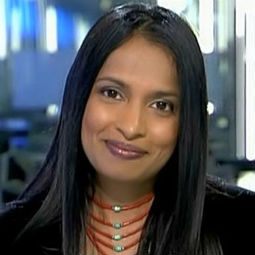
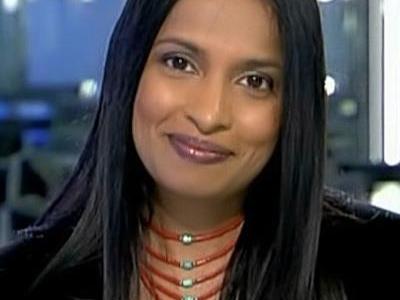
0 Comments
Post new comment